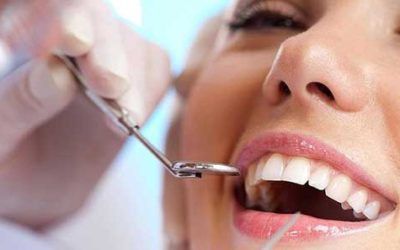Xylitol sweetener looks incredibly similar to sugar, but it won’t rot your teeth!
Unfortunately, most people’s favorite sugars are the ones that tend to rot your teeth. So how and why does sugar rot your teeth and how does a sugar alternative – namely a xylitol sweetener – compare?
The sugars that can rot your teeth all contain glucose, the simple sugar that provides energy for us and all the rest of the animal world. Glucose is found in table sugar (sucrose), brown sugar, corn syrup, honey, high fructose corn syrup, and even agave. Sugars rot your teeth because bacteria living in the plaque on our teeth can eat the sugar we eat, but they make from it acids that eat through the enamel surfaces of our teeth. This process leads to cavities.
So while it’s not exactly the sugar itself that rots your teeth, it feeds the bacteria and leads to the acids that do cause cavities and rot. You don’t want to add fuel to the fire and worsen any dental problems you might be having.
Where the cavity causing bacteria use sugar as fuel to create more damage, xylitol starves the bacteria and eliminates the acid, which saves your teeth.
How sugar rots your teeth vs a xylitol sweetener
Xylitol has been shown in many studies to help fight cavities. Where sugar fuels the bacteria that live in plaque, xylitol is unable to be metabolized by the bacteria. In fact, regular use of xylitol causes the bacteria to starve and die off by as much as 73%.
Xylitol also helps keep the natural pH of the mouth, meaning the normal acidic byproducts that are formed by fermented sugars are lessened.
Many studies from the 1970s shows that consuming xylitol can actually result in a reduction of tooth decay ranging from 30%, with three exposures a day, to an incredible 80%, with five!
You can purchase xylitol sweeteners from your local retailer to get your xylitol sweetener today or visit our xylitol products page to see what brands you can purchase online!
Related Articles
Is Your Dentist Recommending Xylitol? Why Not?
Xylitol is the most effective way of preventing tooth decay we know of.
Do Sugar Substitutes Ruin Your Teeth?
Consuming sugar substitutes in lieu of sugar is an excellent choice for your body’s over-all health and functionality. But are they good for your teeth? As you well know, consuming sugar can lead to tooth decay and cavities. However, according...
The Benefits of Gum with Xylitol
The health and dental benefits of xylitol are numerous and, in fact, are so impressive that many people are left shocked. What is it about xylitol that makes it so beneficial? Why is xylitol such a perfect ingredient for gum and other dental...
Understanding the Importance of Xylitol Dental Health
Can xylitol play a role in your dental care program? People around the world are now using this all-natural sweetener. While it was discovered in the late 19th century, xylitol didn’t really begin making its way into the public consciousness...
Reasons to Use Xylitol Chewing Gum
The right xylitol chewing gum can help you boost your overall oral health. Beginning in Finland in the 1970s, researchers began studying the diverse benefits of xylitol and were, in fact, quite surprised by what xylitol had to offer. Xylitol...
Dental Journals on Xylitol
Randomized Controlled Trial: A Randomized Controlled Clinical Trial Comparing A Remineralizing Paste with an Antibacterial Gel to Prevent Early Childhood Caries KA Plonka, ML Pukallus, TF Holcombe, AG Barnett… – Pediatric dentistry, 2013...







